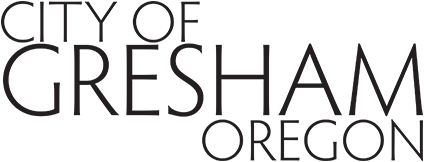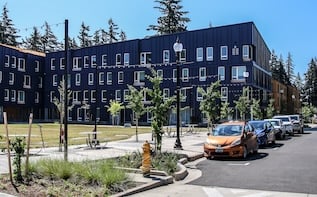- Home
- Urban Design and Planning
- Planning Projects
- Climate-Friendly and Equitable Communities
Urban Design and Planning
Climate-Friendly and Equitable Communities
The state passed new rules to reduce greenhouse gases (GHG) and move Oregon closer to its emission goals.
The rules include transportation planning, changes to the local development code, and regional GHG scenario planning.
This project will apply the required changes to local parking development codes.
Project information
- Status and Updates
- Project Schedule
- Project Background
- Project Documents
- Contact
Staff is conducting research on parking and drafting phase one code changes. Climate-Friendly and Equitable Communities (CFEC) Phase 1 draft code is ready for review
- Watch the March 21, 2023 Council presentation related to parking management.
- Council work session on CFEC phase 2 and parking data, March 19, 2024.
Get involved
Receive news about the City's efforts on state Climate-Friendly and Equitable Communities rules.
Winter 2024
- CFEC phase 1 code changes adopted
- Council discussion on phase 2 options and parking data.
Spring 2023
- Apply parking phase one code changes through administrative policy.
- Draft code for phase one code changes.
- Research funding options and analyze phase two parking options.
Summer 2023
- Outreach for draft phase one code changes.
- Discuss parking management options with City Council.
Fall 2023
- Begin phase one code changes adoption process.
- Planning Commission work session - Aug. 28
- City Council work session - Sep. 5
- Planning Commission hearing - Sep. 25
- City Council hearing - Nov. 7
Oregon is not meeting its climate pollution reduction goals. In response, Gov. Kate Brown issued an executive order in March 2020 directing state agencies to take actions to reduce carbon emissions and lessen climate change impacts.
The Department of Land Conservation and Development (DLCD) began rulemaking in 2020. The Land Conservation and Development Commission (LCDC) adopted the final rules in July 2022.
Learn more about the state’s rules for Climate-Friendly and Equitable Communities.
Why this work is important
Oregon legislators adopted a goal in 2007 to reduce Oregon’s climate pollution by 75% by 2050. That’s what the science calls for if Oregon is going to avoid catastrophic impacts to our environment, communities and economy.
Pollution from transportation
Pollution from transportation is responsible for about 38% of Oregon’s climate pollution. On our current path, Oregon will only reduce transportation pollution by about 20% by 2050. This means we’re polluting far more than we hoped, meaning more extreme weather events, more wildfires, more ocean acidification, and more record heat waves.
Climate-friendly areas
We can reduce climate pollution by creating climate-friendly areas where residents, workers, and visitors can meet most of their daily needs without having to drive.
- Climate-friendly areas are urban mixed-use areas that contain or are planned to contain, a greater mix and supply of housing, jobs, businesses, and services.
- These areas are served or planned to be served, by a high-quality pedestrian, bicycle, and transit infrastructure to provide frequent, comfortable, and convenient connections to key destinations within the city and region.
- In Gresham, climate-friendly areas are the Downtown/Civic Regional Center and the Rockwood and Pleasant Valley Town Centers.
- State-required parking reductions help to create these dense urban areas by letting developers choose how much parking to provide and how much land to use for housing, businesses and services.
Council presentations
- Introduction: June 7, 2022
- Detailed rules: Aug. 16, 2022
- Alternative dates: Nov. 1, 2022
- Parking management: March 21, 2023
Planning Commission presentation
- Aug. 28, 2023
Jay Higgins, Senior Planner
Jay.Higgins@GreshamOregon.gov
503-618-2215





